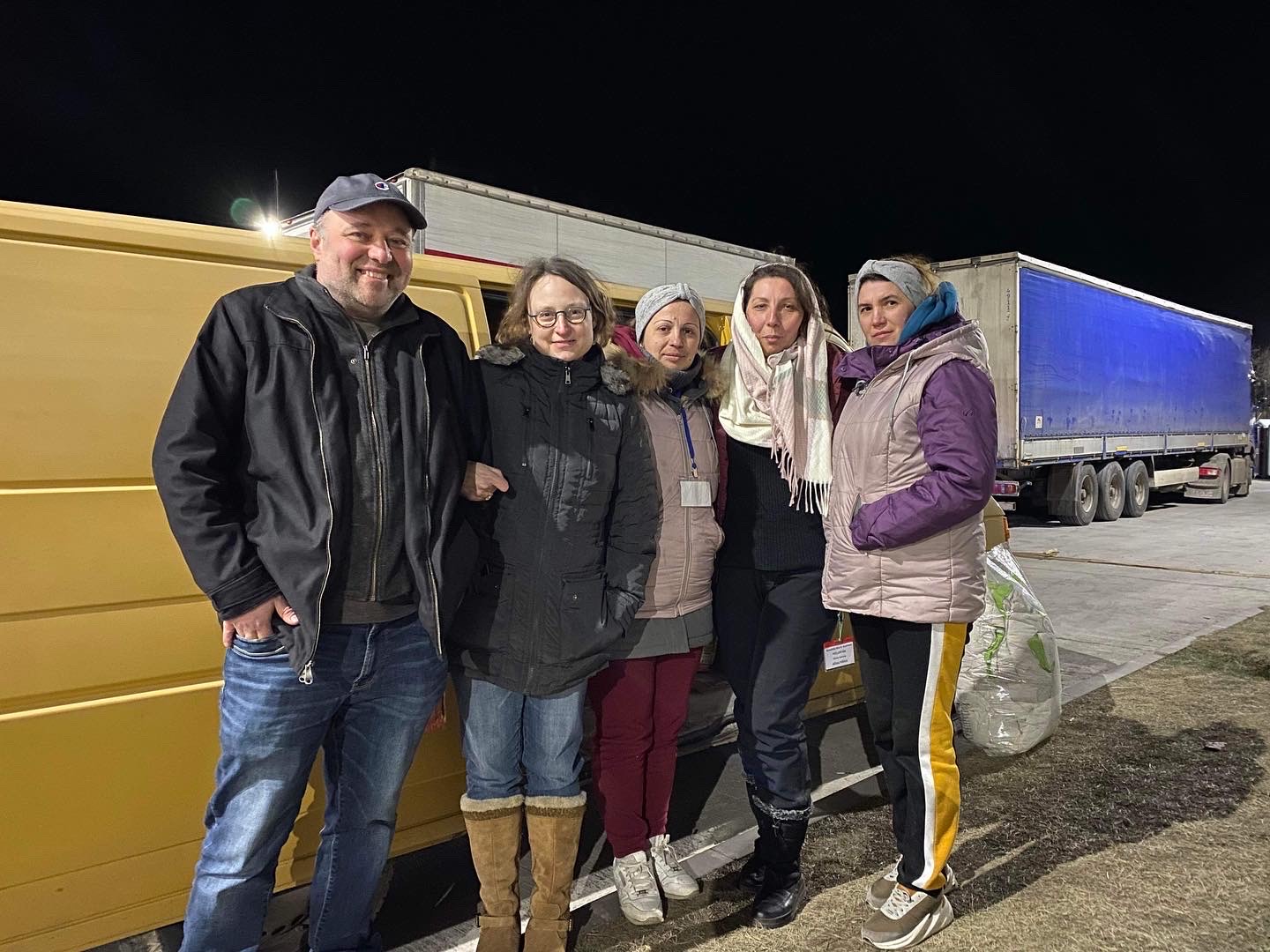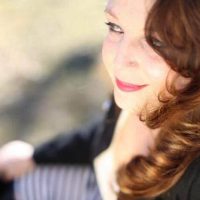This is a story on how my childhood friend became a leading researcher and educator on the Holocaust, and how she is currently helping Ukrainians on the border.
I met Michelle when I was five years old in 1974. My parents had recently been divorced and my mother brought me to Ames, Iowa, to live with my grandparents in her family home where she was raised. Michelle lived across the street, and I remember distinctly sitting on my grandparents’ porch, getting to know each other.
Her questions at her ripe age were poignant and stuck in my memory to this day.
“Why are you allergic to chocolate? What is carob? Why do you have a band-aid on your finger?” Michelle pointed to the photo of Maharishi Mahesh Yogi and Guru Dev in my mother’s room, “Who are those people?” At five years old, I knew this relationship was going to be deep.
We both started school at St. Cecelia’s Elementary School that Fall, and our playdates continued: playing house on my grandparents’ sofas, playing dreamland under their cardboard table, and introducing each other to a variety of experiences. Michelle was that kind of friend who, at the age of seven, picked up all her pennies and agreed to briefly run away from home with me. I was outraged that my mother made me clean my room after spending six months in Switzerland. And Michelle took that cause as her own. We made it seven blocks to a local restaurant where we ordered water, and soon after, my grandpa picked us up and brought us back home. That’s solidarity.
My maternal grandparents were down-home Iowa folk, and provided a sense of stability, routine, and warmth—memories I cherish to this day. My parents met at Iowa State. My dad was a foreign exchange student from Peru. His parents were immigrants from what is now Ukraine/Romania/Russia. They left for Peru with Romanian passports after being denied visas for the United States and made Peru their new homeland, even though they still spoke Russian amongst themselves.
My adventurous mother followed my father to Peru (where I was born), and when I was a few years old, we moved to Santa Barbara, California. A few years later, my mother and I moved to Ames, Iowa. Michelle was one of the highlights of my years in Ames, but what is most striking to me is that at that time, we never spoke of (and I at least) did not understand my own cultural heritage, and yet somehow, years later, these cultural tribes would remanifest in the most unique ways.
Flash-forward, Michelle went on to marry a Romanian citizen and move to Romania. Her credentials inspire me and her educational path leaves me awe struck. She is currently residing in Romania and Washington, DC, and is the Director of Human Services and Social Justice at The Columbian College of Arts and Sciences. I feel Michelle’s academic achievements are worth noting here as it provides context for her life’s work and mission.
Her current research includes Holocaust and Genocide, Education in Eastern Europe, Migration and the European Union, Gender and Employment, Collective Memory, PhD in Sociology, University of Michigan, 2010, Master of Public Affairs, University of Texas, 2001, Master of Arts in Russian, East European, and Eurasian Studies, University of Texas, 2001. Her areas of expertise are Historical and Comparative Sociology, Ethnography, Sociology of Education, Race and Ethnicity, Health and Aging, and Visual Sociology.
Michelle’s research focuses primarily on the fate of the Roma during the Holocaust in Romania. Social justice and the exploration of (in)equalities are the foundations of her research, too. She is particularly interested in the intersection of memory, marginalization and contemporary education policy. Recently, Dr. Kelso has also begun exploring gender in the workplace as well as EU migration. With a strong belief in public sociology, Dr. Kelso integrates her scholarship with public discussions and policy programming. In 2017, she began a research project focusing on memory and commemoration of the Holocaust in post-Soviet spaces with a concentration on Ukraine.
Dr. Kelso consulted for the Council of Europe, USAID, non-profits, Holocaust compensation programs, as well as the Romanian government. She has been the recipient of several prestigious national awards, including a Fulbright Core Fellowship to Romania in 2016-17, and two prior Fulbrights in 2004 and 1994. Dr. Kelso was a Charles H. Revson Foundation Fellow at the U.S. Holocaust Memorial Museum in 2009, where she researched the Romani experience in Romanian-run camps in occupied Soviet Union during WWII. She speaks Romanian and French, and has studied Romani, Spanish and is beginning Russian.
Dr. Kelso also worked in civil society and media. From 2005-2010, she directed a Romanian non-profit that focused on tolerance and democracy building. In 2005, she made a documentary film: Hidden Sorrows: The Persecution of Romanian Gypsies During WWII that has screened in seven countries, numerous film festivals, and aired on three national television channels. Dr. Kelso has also been a freelance photographer for USA Today and the Associated Press, and is a contributor to the Huffington Post.
Today Michelle (Dr. Kelso) and her husband Alex are actively on the ground on the Ukrainian border helping as many people as they can with the medical and physical assistance they need. (See above photo) After transferring donated medicines and supplies, the Ukrainian team crosses back across the Romania border on March 19 2022.
The stories of hardship they share are heartbreaking. On a cellular level, my family history is being re-alivened and I cannot help but be in awe of my inquisitive and caring childhood friend making a mission of helping in real time the people she has spent her life and career understanding.
As the world evolves, the experience that there is less than six degrees of seperation become increasingly vivid. May these stories help to enliven these connections we all share and may the mosaic of our world become a tapesty we all relish. War for any of us is destruction for all of us, and the opposite holds true – the time space barrier of a global family is just a heartbeat and that is humanity’s true indicator friendship.



 Share on bsky
Share on bsky




Read 4 comments and reply